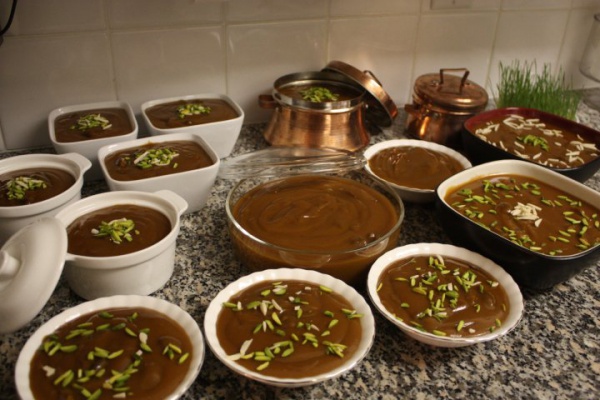Facts About Samanu
Samanu, also known by various names such as Samanak, Sümelek, Sumanak, Sumalak, or Sümölök, is a sweet, rich paste made from germinated wheat. This delightful treat is traditionally prepared to celebrate Nowruz, a festival that dates back to the ancient Sasanian Persian Empire.
Making Samanu is a meticulous process. It begins with soaking and sprouting wheat, a procedure that can span several days. The complete preparation can last over a week. The final cooking phase was historically a grand, festive event primarily involving women. It would commence in the evening and continue until dawn, accompanied by laughter, music, and singing.
In countries like Afghanistan, Uzbekistan, Tajikistan, and Azerbaijan, the tradition of making Samanu holds deep cultural significance. During the preparation, people sing songs, make wishes while stirring the paste, and even toss walnuts into the mixture for good luck. Once the Samanu is ready and warm, it is shared with neighbors, relatives, and friends as a gesture of goodwill and communal harmony.
Today, making Samanu can also be a family affair. Some households add flour to accelerate the thickening process, though this can slightly alter the taste. Despite modern adaptations, Samanu remains a culturally significant element, often featured as one of the traditional items on the Haft-sin table during Nowruz celebrations.
The Azerbaijani proverb "Səməni, ay səməni, hər il göyərdərəm səni" beautifully encapsulates the essence of Samanu, symbolizing renewal and the promise of new beginnings each year.

 Turkmenistan
Turkmenistan